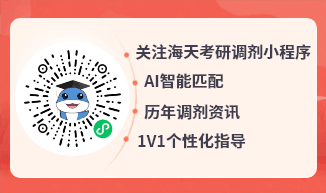考研英语阅读:并购必须受到密切关注
The world is going through the biggest wave of mergers and acquisitions ever witnessed. The process sweeps from hyperactive America to Europe and reaches the emerging countries with unsurpassed might. Many in these countries are looking at this process and worrying: “Won't the wave of business concentration turn into an uncontrollable anti-competitive force?"
There's no question that the big are getting bigger and more powerful. Multinational corporations accounted for less than 20% of international trade in 1982. Today the figure is more than 25% and growing rapidly. International affiliates account for a fast-growing segment of production in economies that open up and welcome foreign investment. In Argentina, for instance, after the reforms of the early 1990s, multinationals went from 43% to almost 70% of the industrial production of the 200 largest firms. This phenomenon has created serious concerns over the role of smaller economic firms, of national businessmen and over the ultimate stability of the world economy.
I believe that the most important forces behind the massive M&A wave are the same that underlie the globalization process: falling transportation and communication costs, lower trade and investment barriers and enlarged markets that require enlarged operations capable of meeting customers' demands. All these are beneficial, not detrimental, to consumers. As productivity grows, the world's wealth increases.
Examples of benefits or costs of the current concentration wave are scanty. Yet it is hard to imagine that the merger of a few oil firms today could re-create the same threats to competition that were feared nearly a century ago in the U.S., when the Standard Oil trust was broken up. The mergers of telecom companies, such as WorldCom, hardly seem to bring higher prices for consumers or a reduction in the pace of technical progress. On the contrary, the price of communications is coming down fast. In cars, too, concentration is increasing-witness Daimler and Chrysler, Renault and Nissan-but it does not appear that consumers are being hurt.
Yet the fact remains that the merger movement must be watched. A few weeks ago, Alan Greenspan warned against the megamergers in the banking industry. Who is going to supervise, regulate and operate as lender of last resort with the gigantic banks that are being created? Won't multinationals shift production from one place to another when a nation gets too strict about infringements to fair competition? And should one country take upon itself the role of “defending competition" on issues that affect many other nations, as in the U.S. vs. Microsoft case?
全文翻译
世界正在经历一场前所未有的最大的的并购浪潮。这个浪潮从异常活跃的美国开始,横扫欧洲,并以不可比拟的威力影响到正在崛起的国家。这些国家的许多人面对这个浪潮,倍感忧虑:“商业集中的浪潮会不会演变成一股无法控制的反竞争的力量?”
无疑,大企业正在变得更大、更强。1982年,跨国公司占国际贸易不到20%的份额。而如今,这个数字已经超过25%,并且还在迅速上升。在那些对外开放并鼓励外资的经济体中,国际分公司在生产中也正占据一个越来越大的份额。比如,在阿根廷,经过90年代初的改革之后,跨国公司在200家大型企业的工业生产中从43%增加到几乎70%。这个现象使人们开始重视小型企业和民族资本的作用以及世界经济的最终稳定。
我认为,日趋下降的运输与通讯费用,较低的贸易与投资壁垒,以及市场的扩大和为满足市场需求而进行的扩大生产,是推动这股巨大的并购浪潮的最主要的力量,也是推动全球化进程的力量。所有这些对消费者来说都是有益而无害的。随着生产力的提高,世界的财富也在增长。
这股合并浪潮是带来益处还是弊端的实例还很少。但是很难想像当今的几个石油公司的合并能够再次造成像100年前美国标准石油托拉斯对竞争形成的威胁,人们当时很害怕这家公司,结果导致了它最终的解散。像世通这样的通讯公司的合并似乎不会抬高消费价格,或者减缓技术进步的速度,与之相反的是通信的价格的快速下降。汽车行业的合并也同样在增加--瞧瞧戴姆勒与克莱斯勒,雷诺与尼桑的合并--但看起来消费者并未受到伤害。
但是有一个事实,那就是合并必须受到密切关注。就在几星期以前,格林斯潘对银行业的大规模合并发出了警告。正在创建的这样的巨大的银行一旦出现,谁来充当最终的借贷者,谁来发挥监督、规范和运作的作用呢?当一个国家对破坏公平竞争的行为的处理过于严厉时,跨国公司会不会把它们的生产从一地转到另一地呢?在那些将会影响许多其他国家的问题上,一个国家是否应该发挥“保护竞争”的作用,就如同美国政府对微软公司案例那样?
2025考研人数达388w,考研热度依旧火热!如何备战2026考研?哪个考研专业适合自己?在职考生如何备考?考研知识点繁多,择校困难大,和海天考研咨询老师聊一聊。网课面授多项选,专业辅导1对1,全年集训随时学!









